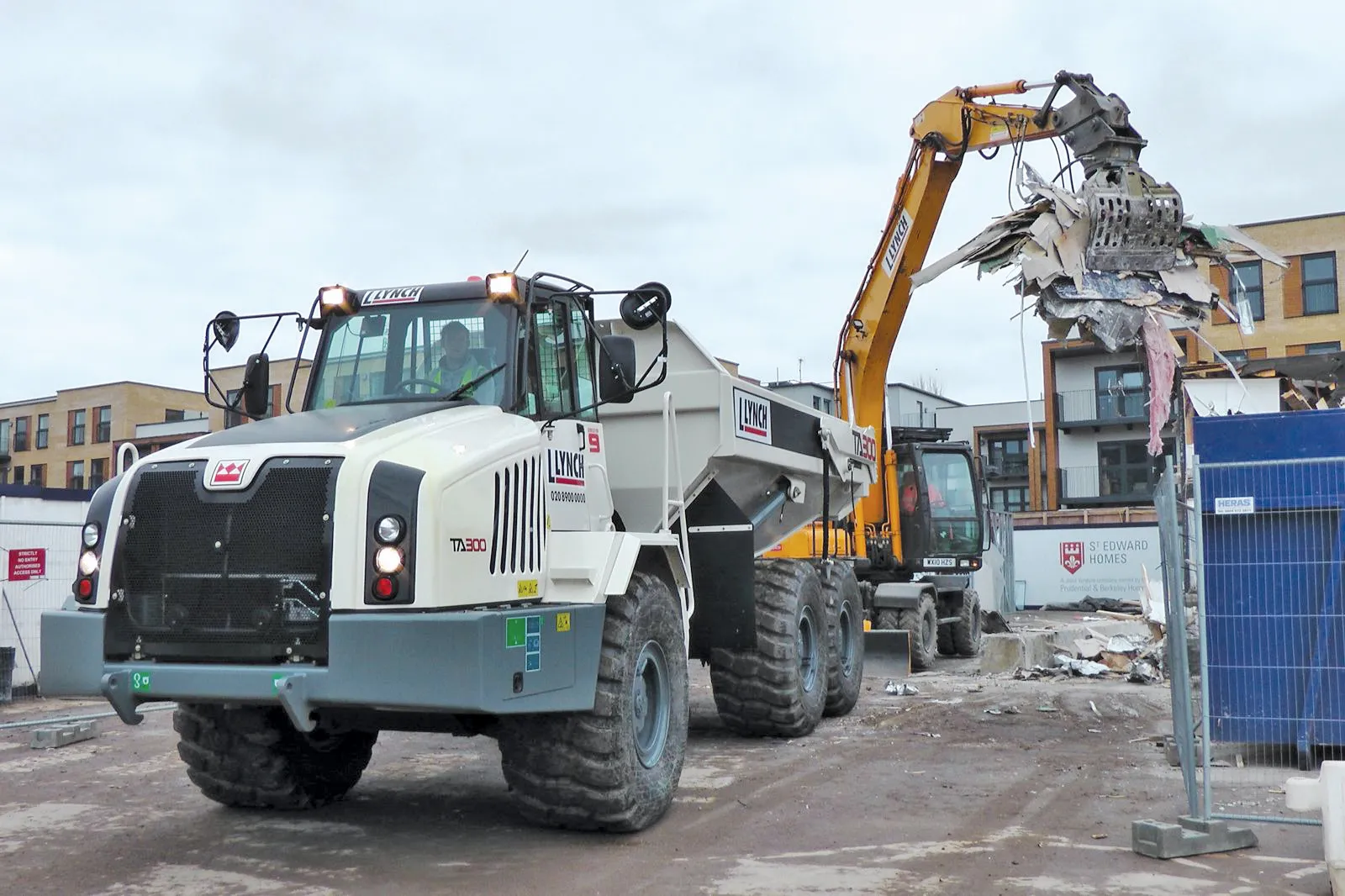L-Lynch Plant Hire has purchased 12 Terex TA300s as part of the UK-based company’s €14.06million (£12mn) investment in new equipment. The articulated trucks were sold by Terex UK distributor, TDL Equipment, and will be used by Lynch’s customers on mainly civil and tunnelling projects. Merrill Lynch, Lynch’s operations director, said that the strengthening of his plant fleet fits with the company’s goal of becoming the number one plant hire service provider in the UK.
June 25, 2013
Read time: 2 mins

L-Lynch Plant Hire has purchased 12 1222 Terex TA300s as part of the UK-based company’s €14.06million (£12mn) investment in new equipment.
The articulated trucks were sold by Terex UK distributor,6414 TDL Equipment, and will be used by Lynch’s customers on mainly civil and tunnelling projects. Merrill Lynch, Lynch’s operations director, said that the strengthening of his plant fleet fits with the company’s goal of becoming the number one plant hire service provider in the UK.
“Many companies are not investing in their equipment right now, but we are taking completely the opposite approach. Our goal is to provide the best service out there and you can only do that by providing your customers with top quality equipment and by being responsive.”
Having previously purchased six Generation 9 Terex trucks in 2011 and several Generation 7 models in 2007, 2008 and 2009, Lynch said that he was more than pleased with the TA300’s performance and reliability. Having conducted thorough competitive analysis of the articulated truck market, he is sure sure that L-Lynch Plant Hire selected the right machine to meet their customers’ requirements. The TA300 Gen 9 ADT is said to offer low total cost of ownership, including excellent fuel economy and product uptime. Furthermore, working in partnership with TDL Equipment, Terex is able to provide L-Lynch Plant Hire and their customers the correct support and response they expect from an original equipment manufacturer (OEM) and regional distributor. L-Lynch Plant Hire’s Terex trucks have worked on large-scale UK projects over the past few years, including the London 2012 Olympics and major Crossrail developments.
The articulated trucks were sold by Terex UK distributor,
“Many companies are not investing in their equipment right now, but we are taking completely the opposite approach. Our goal is to provide the best service out there and you can only do that by providing your customers with top quality equipment and by being responsive.”
Having previously purchased six Generation 9 Terex trucks in 2011 and several Generation 7 models in 2007, 2008 and 2009, Lynch said that he was more than pleased with the TA300’s performance and reliability. Having conducted thorough competitive analysis of the articulated truck market, he is sure sure that L-Lynch Plant Hire selected the right machine to meet their customers’ requirements. The TA300 Gen 9 ADT is said to offer low total cost of ownership, including excellent fuel economy and product uptime. Furthermore, working in partnership with TDL Equipment, Terex is able to provide L-Lynch Plant Hire and their customers the correct support and response they expect from an original equipment manufacturer (OEM) and regional distributor. L-Lynch Plant Hire’s Terex trucks have worked on large-scale UK projects over the past few years, including the London 2012 Olympics and major Crossrail developments.








